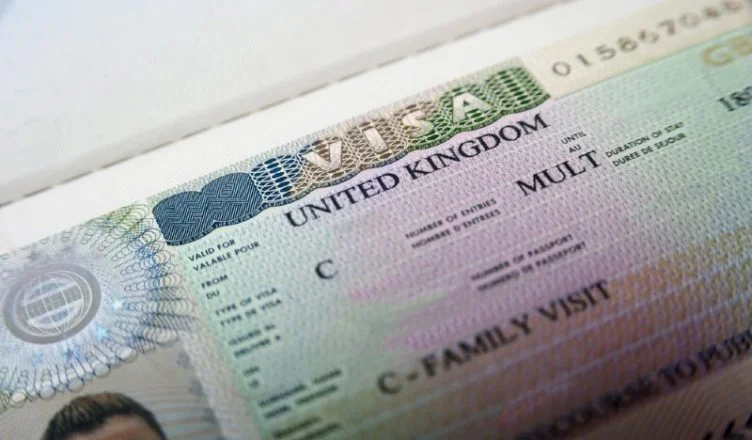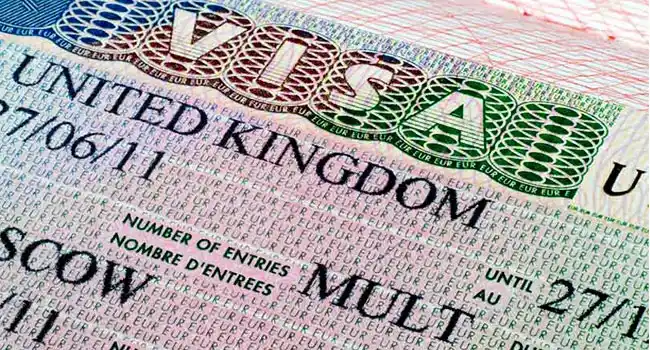Family Visa UK

The UK family visa is a category of visa authorization that allows foreign nationals to reside in the United Kingdom on the basis of a family relationship or partnership with a person who has British citizenship or permanent residence rights.
The purpose of the family visa is to allow families to reunite and live together in the UK. This visa category is usually granted to foreign spouses, partners, children or other dependent relatives of a British citizen or person with permanent residence status.
To obtain a family visa, the applicant must provide evidence of their family or partnership relationship with a person resident in the UK, as well as meeting a number of other requirements, depending on the particular circumstances of their case.
Who Can Apply And Eligibility Requirements
The UK family visa is for individuals who wish to join their close relatives living in the United Kingdom. Here are the main categories of people who can apply for a family visa:
- Spouses, partners or couples forming a joint family household of a British citizen or person with a permanent right of residence.
- Children under the age of 18 if one parent has British citizenship or permanent right of residence in the UK.
- Adult children, parents or other dependent relatives in certain circumstances.
To successfully apply for a family visa, the applicant must meet a number of requirements:
- Proof of relationship. You must provide supporting documents that prove your relationship to a relative or partner in the UK.
- Financial Requirement.: The applicant must prove that they have sufficient funds to live in the UK without accessing state aid. This may include bank statements, wage statements or other documents.
- Housing conditions. You need to show that you have adequate accommodation in the UK where you can live with your relative or partner.
- English language skills. In most cases, applicants will need to prove a certain level of English language skills.
You should carefully prepare all the required documents and information before applying to maximize your chances of successfully obtaining a family visa.
Ways of Obtaining a Family Visa in the UK
A family visa in the UK is granted based on different criteria and situations, allowing applicants to apply for it on different grounds. Let’s take a closer look at the main ways of obtaining this type of visa:
- Through a spouse or partner
If the applicant has a spouse or partner residing in the UK and holding citizenship or permanent status, this can be one of the main routes. However, you need to ensure that your relationship is genuine by providing relevant evidence such as a marriage certificate, joint accounts and other proof of cohabitation.
- Through children
Parents who have children living in the UK can also consider a family visa. In this case, the age of the child, their status in the country, and evidence that the child is dependent on the parents financially or otherwise is important.
- Through long-term residence
People who have lived in the UK long enough, for example, for study or work, and have established a family or other attachments there, can also consider this option. But it is worth bearing in mind the need to prove your long and legal stay.
- Through dependent relatives
If you have relatives in the UK who, due to health or age, need your care or support, you may want to consider this route. For example, an elderly parent or disabled relative may be grounds for applying for a family visa.
There are nuances and requirements for each avenue listed. Therefore, it is highly recommended to consult a specialist or research official sources before proceeding with the paperwork.
UK Family Visa Requirements And Their Types
There are several types of family visa UK, which are granted based on different criteria and relationships with citizens or residents of the country. Each type of family visa has its own features and requirements, which are important to be aware of when applying.
Spouse visa
This type of visa is for those who wish to join their spouse living in the UK.
Requirements: proof of legal marriage, financial security for the resident spouse, English language skills to a certain level and other criteria that may vary depending on the situation.
Visa for dependent children
Designed for children under the age of 18 who wish to live with their parents in the UK.
Requirements: Children must be under 18, unmarried and dependent on their parents. Parents must have permanent residence or UK citizenship.
British visa by descent
This type of family route visa is for people who have direct roots in the UK, for example one of their parents or grandparents were born in the UK.
Requirements: you need to provide proof of your ancestry, ID card and other relevant documents proving your connection to the UK.
Adult dependent visa
This category is for adult children who are dependent on their parents living in the UK for certain reasons.
Requirements: you need to prove that you are dependent on your parents in the UK, financially, emotionally or for health reasons. You also need to verify that you have no other close relatives in your home country who can provide for you.
Each of these types of UK family visa has its own specifications and requirements. Therefore, before applying, it is advisable to thoroughly research the information on official resources or contact specialists in this field.

The Process of Appealing a Family Visa Refusal in the UK
The importance of approaching the family visa application UK process correctly cannot be understated. The process is fraught with many subtleties and nuances that can greatly affect its outcome.
The main stages of an appeal:
Determining the grounds for appeal. Before you start the procedure, it is important to understand the reasons for your dissatisfaction with the decision. Misinterpreted facts, misapplication of the law, or failure to follow procedural rules can all form the basis for an appeal.
Preparing comprehensive documentation. This step requires careful thought. Every document that can support your arguments must be submitted. This includes written evidence, photographs, proof of financial stability, and so on.
Procedural aspects of filing an appeal. Completing and submitting the appropriate appeal form by the deadline is important to further your case.
Waiting for the hearing date and preparing for it. At this stage, you need to prepare all the necessary documents and arguments to present your case in front of the judge as effectively as possible.
The hearing process. The hearing is your chance to present your case in person or through your representative in front of the court. Effectively presenting your case can greatly affect the outcome of the trial.
Analyzing the court’s decision and next steps. Once the decision has been made, it is important to understand its contents, possible consequences, and next steps. Additional counseling or action on your side may be necessary.
Filing an appeal is a complex and responsible process that requires not only knowledge of the laws, but also the ability to correctly apply them in practice. At each step, it is recommended that you consult with an immigration law specialist to increase your chances of a successful outcome.
Reasons For Refusal of a Family Visa in the UK
Obtaining a family visa in the UK is a complex process that requires clear compliance with many criteria and conditions. While many applicants successfully go through the process, others face rejection for various reasons. Let’s take a closer look at the main reasons why a family visa application may be rejected.
- Insufficient financial support
This is one of the most common reasons for rejection. There are certain minimum financial requirements for a family visa in the UK, and the applicant must demonstrate that their income or savings meet these requirements. If they are unable to prove their financial solvency, the likelihood of rejection increases.
- Lack of genuine evidence of relationship
Immigration authorities are keen to ascertain that the relationship between the applicant and their partner in the UK is genuine and enduring. If the evidence provided is deemed insufficient or questionable, this may be grounds for refusal.
- Problems with the submission of documents
Errors in completing forms, missing required documents or providing outdated or irrelevant information often result in refusals.
- Doubts about the applicant’s true intentions
If immigration authorities determine that an applicant may have other travel purposes than those stated, this may be grounds for denial.
- Immigration History
Past violations, such as staying in the country past the visa expiration date or other immigration law violations, can significantly affect the decision.
- Medical conditions or criminal history
Certain medical diagnoses or criminal offenses may be a reason to deny a visa for the safety and health of citizens.
- Unsuccessful interviews
An interview may be required when applying for a visa. Incorrect answers or contradictions in information may raise doubts with the immigration officer.
Following all requirements and providing correct, up-to-date information increases the chances of successfully obtaining a family visa. If denied, it is recommended that you consult with an immigration law professional to understand the possible steps to reapply or appeal.
Family Visa UK Cost
One of the key aspects of applying for a UK family visa is not only meeting the eligibility requirements, but also paying the consular fee. The cost of applying for a family visa in the UK is £50. The payment is made at the application stage and is usually non-refundable if the visa is refused.
However, the price may change depending on changes in immigration legislation or consular fees. It is therefore advisable to check the current cost in advance before starting the application process. It is also worth considering possible additional costs such as medical examinations, translation of documents and other services related to visa processing.
